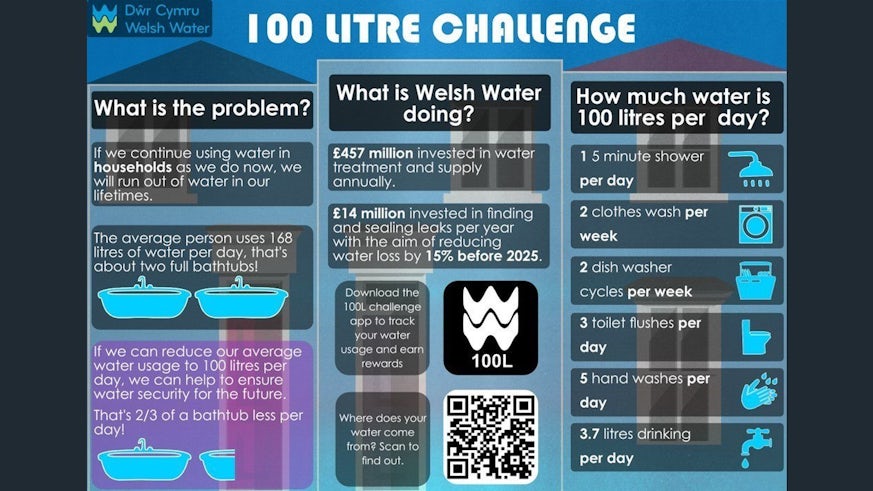Students’ Dŵr Cymru water conservation challenge
12 October 2022

Research students come up with innovative ways of saving water to combat increased demand and supply issues
Faced with the adverse effects of climate change on water supplies, our aging infrastructure and the ability of customers to pay, how do you reduce average water consumption to 100 litres per day? This was the challenge put to postdoctoral students researching freshwater sustainability by Dŵr Cymru Welsh Water (DCWW).
Water shortages are becoming a real concern, with Sir James Bevan, Chief Executive of the Environment Agency, declaring that we are approaching the “jaws of death” when it comes to water scarcity. During the summer of 2022, DCWW imposed its first temporary hose pipe ban in Wales for 35 years.
Extreme weather events, coupled with high water consumption, not only lead to issues with supply, but also increase water temperature in rivers and reservoirs. This can cause algal growth and low river flows, which can have negative impacts on aquatic species like fish. In 2021, water consumption per person in Wales had risen to 176 litres per day, far exceeding the Welsh Government target of 110 litres per day.
The PhD students, acting as consultants, were asked to come up with innovative ideas to address the urgent issue of increasing demand faced by water utility companies. Working across disciplines, they used a systems thinking (or holistic) approach to develop their proposals, which were presented to DCWW Research and Innovation Manager, Paul Gaskin.
Paul said: “Water is a precious commodity and reducing demand has a number of environmental benefits. It was great to engage with the PhD students to understand their take on consumption and listen to their solutions. It is vital as a company that we engage with others to co-create solutions to our complex challenges.”
Ideas included an app to track water consumption and reward low or decreased use, a “Save it, don’t spray it” strategy for primary school children and their families to raise awareness of conserving water, using DCWW’s social media to target young people and extending frameworks about saving energy to include water use.
Professor Isabelle Durance, Director of Cardiff’s School of Biosciences Water Research Institute, said: “Understanding real-life challenges is key for impactful research. Our strategic partnership with DCWW offers unique opportunities for our postgraduate students to understand first-hand the complexity of challenges faced by water utilities.”
The PhD students are part of GW4 FRESH - a Natural Environment Research Council (NERC) Centre for Doctoral Training in Freshwater Biosciences and Sustainability – a world-class doctoral research and training environment for the next generation of interdisciplinary freshwater scientists equipped to tackle future global water challenges. Made up of four of the UK’s most research-intensive universities (Bath, Bristol, Exeter and Cardiff), GW4 FRESH also consists of research organisations including the UK Centre for Ecology and Hydrology (CEH) and British Geological Survey (BGS).
In July 2022, Cardiff University and DCWW signed a strategic partnership for future collaboration, facilitating mutual access to research, services and expertise.
